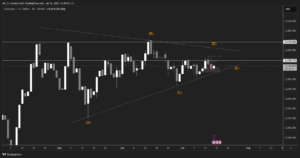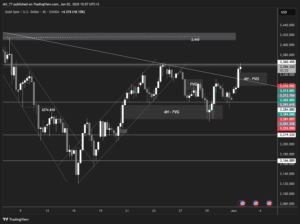Sanctions have been piling up against Russia in response to the country’s military invasion of Ukraine in February 2022. Sanctions include, among others, import and export restrictions in the energy sector, blocking Russian banks from SWIFT, the freezing of assets and financial transactions of Russian oligarchs, or targeting personalities close to the Kremlin.
Imposing restrictive measures on Russia is not something new; some economic measures had already been imposed by the European Union in March 2014, in response to the illegal annexation of Crimea. But, still, it’s the latest sanctions that put a dent in numerous global companies:
Carlsberg
Carlsberg is the Western brewer most exposed to Russia; the Danish giant makes around 10% of its sales in Russia. Carlsberg also fully owns Baltika Breweries, the second largest brewing company in Russia andthe bigger exporter of Russian beer. In late March, Carlsberg announced that “we have taken the difficult and immediate decision to seek a full disposal of our business in Russia, which we believe is the right thing to do in the current environment. Upon completion we will have no presence in Russia.” and that any profits made in February and March will be donated to relief organizations. Even though the company’s shares have taken a hit since Russia invaded Ukraine, its stock, however, surged after the exodus from the Russian market was announced. Quite the reward for a multi-million moral choice.
BASF
Germany is the lead European buyer of Russian oil and gas, and last week, the CEO of the multinational chemical company BASF SE, Martin Brudermüller, shared his concerns about what it would mean for the country if there is a long-term halt or disruption to Russian gas and oil imports. According to Mr. Brudermüller, “many things would collapse here” – given that “we would have high levels of unemployment, and many companies would go bankrupt. This would lead to irreversible damage. To put it bluntly: This could bring the German economy into its worst crisis since the end of the Second World War and destroy our prosperity. For many small and medium-sized companies, in particular, it could mean the end.“.
“The CEO also noted that BASF had to reduce the production of ammonia for fertilizer production and called this “a catastrophe and we will feel it even more clearly next year than this one. Because most of the fertilizers that the farmers need this year have already been bought. In 2023 there will be a shortage, and then the poor countries in particular, for example in Africa, will no longer be able to afford to buy basic foodstuffs.“
Shell
Oil major, Shell announced in March that it would no longer purchase crude oil from Russia and that it would shut its service stations, aviation fuels, and lubricants operations in Russia. The British group’s withdrawal is expected to hit the company with huge losses; to this, Shell stated that “For the first quarter 2022 results, the post-tax impact from impairment of non-current assets and additional charges (e.g. write-downs of receivable, expected credit losses, and onerous contracts) relating to Russia activities are expected to be $4 to $5 billion,”.
Renault
On March 23, French automaker Renault announced that the company is halting operations at its Moscow plant. Renault also owns a controlling 67.61% stake in the Russian automobile company, Avtovaz, and in the same statement, Renault noted that it’s still considering the future of the Russian company. The company’s stock is trading at EUR 21,84, which is a considerable drop from the EUR 36,33 share price right before the invasion of Russia against Ukraine.
The costly decision to stop business in Russia is not only limited to the companies from above. Many other, international, companies have shared the impact that their decision to suspend their business with Russia translates to in terms of financial losses. For instance:
- Swedish Volvo suspended “all sales, service and production” in Russia, and said that it was setting aside approximately $423 million to make up for the expected quarterly losses.
- French multinational investment bank, Société Générale, is ceasing activities in Russia and is selling its controlling stake in Rosbank to Interros Capital, in an exit deal that will cost SocGen about $3.3 billion.
Furthermore, on April 9th, the EU decided to impose a fifth round of sanctions against Russia, which includes, among others, a coal embargo, a ban on the access of Russian-flagged sea vessels to EU ports, and a ban on Russian and Belarussian freight road operators transporting goods by road within the EU. In a statement by Josep Borrell, the High Representative for Foreign Affairs and Security Policy, the aim of the latest round of sanctions is “to stop the reckless, inhuman and aggressive behavior of the Russian troops and make clear to the decision-makers in the Kremlin that their illegal aggression comes at a heavy cost.”
Disclaimer: This article is not investment advice or an investment recommendation and should not be considered as such. The information above is not an invitation to trade and it does not guarantee or predict future performance. The investor is solely responsible for the risk of their decisions. The analysis and commentary presented do not include any consideration of your personal investment objectives, financial circumstances or needs.





